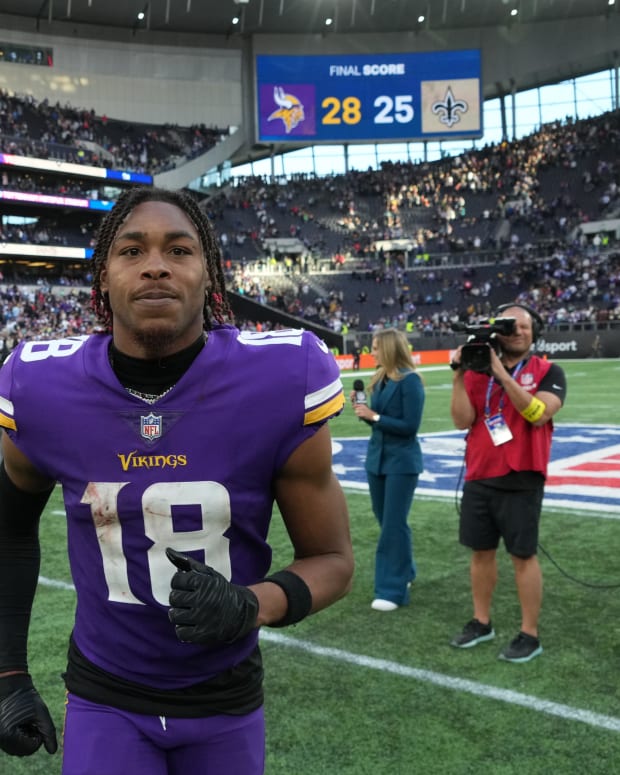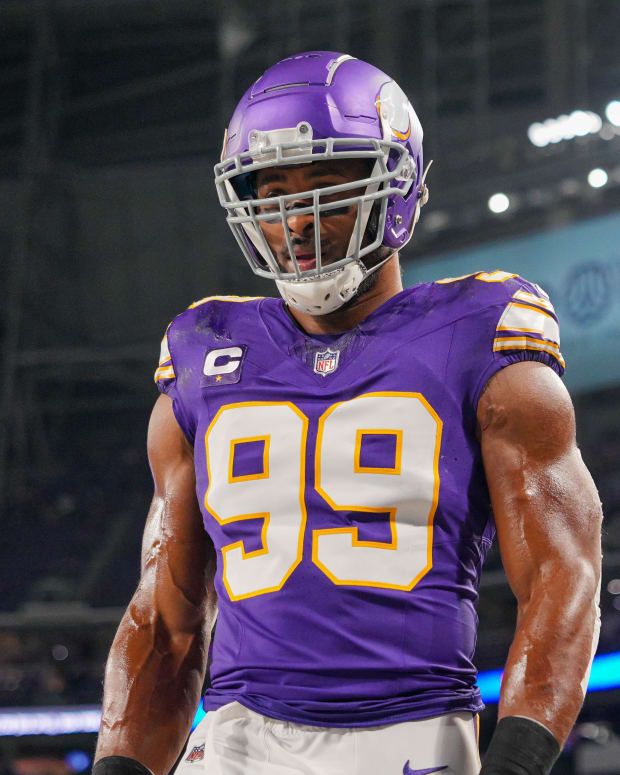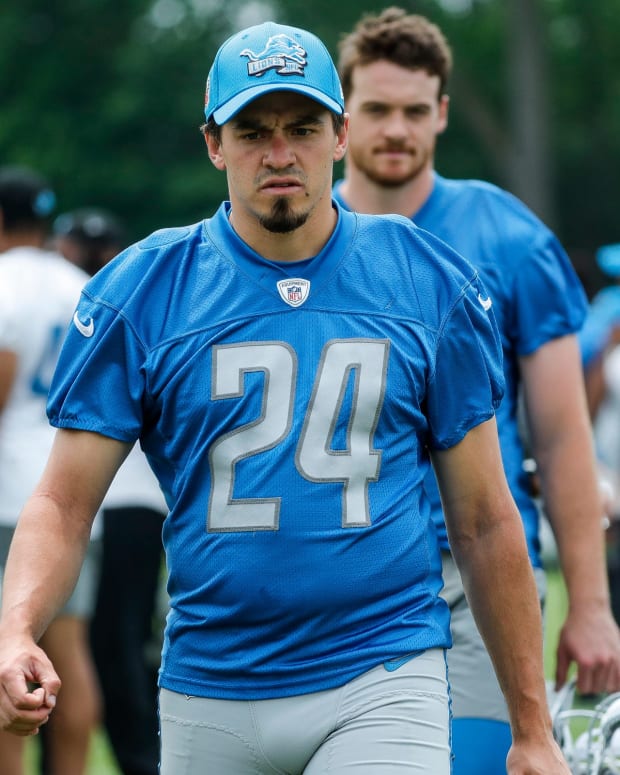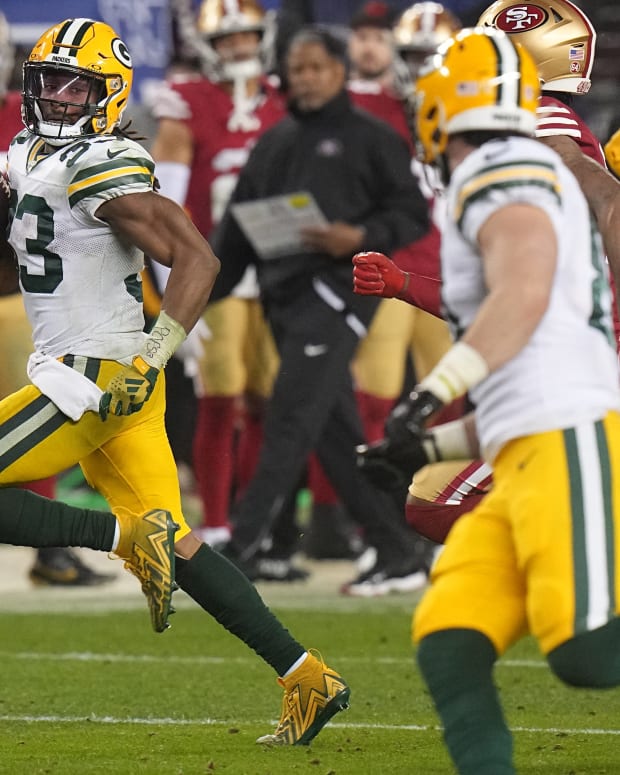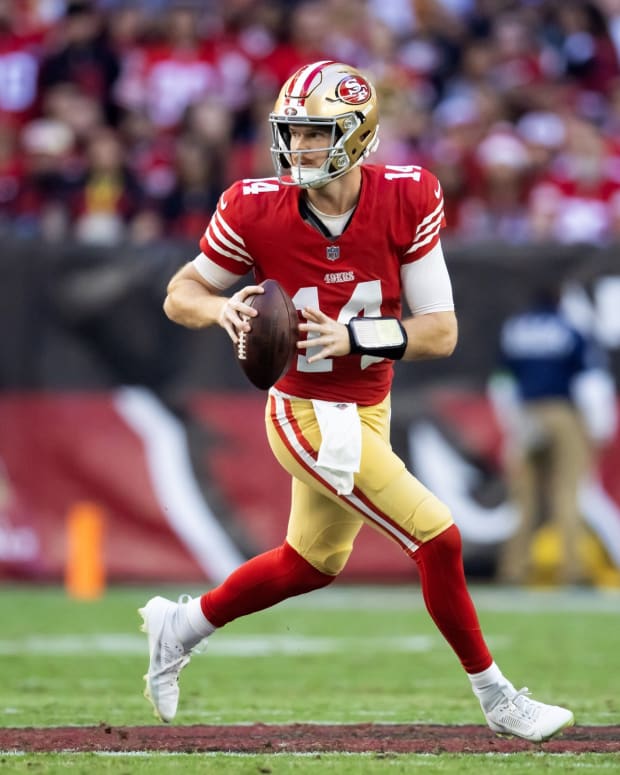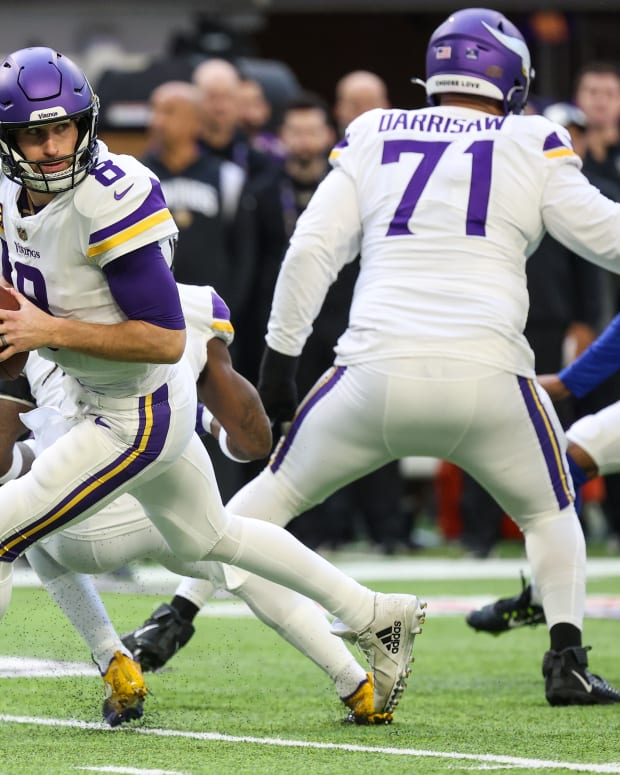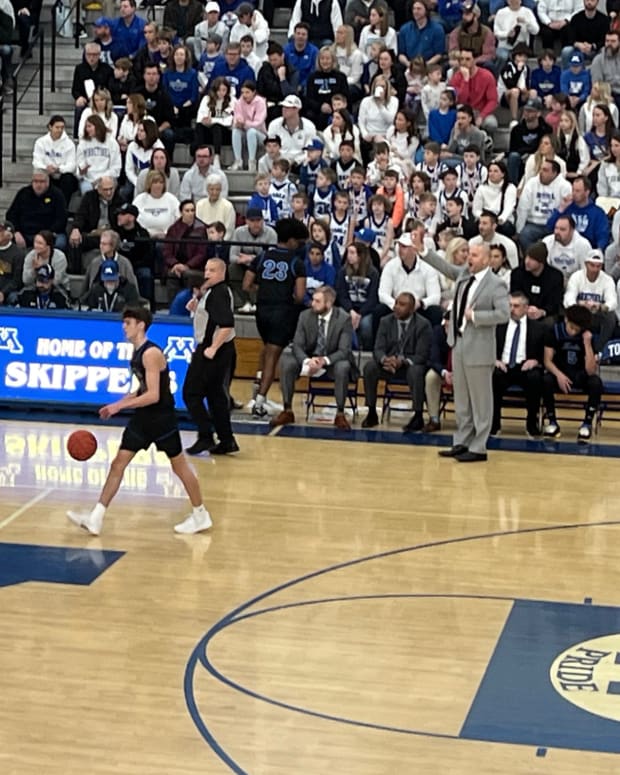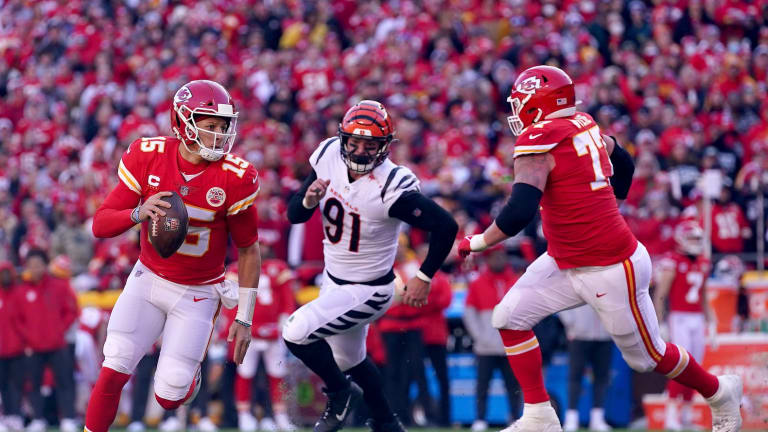
What we have been doing wrong with quarterback rankings

In the month of June, you can’t Google kayaking destinations in Duluth or apple pie recipes without somehow landing on somebody’s quarterback rankings. Not that I’m complaining. If Duluth’s chamber of commerce wrote a QB ranking list, I’d read it immediately. But as fun as it might be to order the QBs 1-32, what’s missing from each rating of the NFL’s best signal callers is scale and what we are trying to really say by ranking them.
When you slot the quarterbacks 1-32, it essentially insinuates that the gap between each QB is the same — that if you put them all on a chart, it would go gently down at a 45 degree angle. This isn’t like ranking NBA players by height where the tallest guy is 7-foot-4 and the next tallest guy is 7-foot-2 and the next tallest guy is 7-foot-1. It’s more like ranking the 32 coolest kids at your high school. The top five are going to be pretty cool. After that there’s a lot of average kids and then the rest are dweebs. The ranking makes it seem like average Tommy is only a better haircut and new jeans away from being team captain Tommy when in reality he’d need to gain four inches in height, 20 pounds of muscle and find a magic box of swag.
Here’s what I mean in statistical terms: The top two passing teams in the NFL last season (Los Angeles and Kansas City) in Expected Points Added were worth around 235 points per Pro-Football Reference. The fifth best (Green Bay) was worth 168 and the 14th (Indy) was worth 83 points. If you have the 10th best passing game in EPA (the Vikings), that seems pretty good but it’s actually nowhere close to the best.
Here’s why being the best passing game in EPA is important: Every team from 2016-2020 to reach the Super Bowl was in the top five in passing EPA. In 2021, the No. 1 team won the Super Bowl, No. 2 reached the AFC Championship and the losing Super Bowl team ranked ninth (Cincinnati would have been higher if not for Joe Burrow’s penchant for taking sacks).
Even a tier system of ranking QBs makes it seem like Tier 1 is close to Tier 2 but it’s usually not. The best QB in the NFL by talent, Patrick Mahomes’ offense scored on 48.2% of their drives last season and produced a total offensive EPA 45 points higher than the next best offense (Buffalo).
The best quarterback is Mahomes, then there is a big gap, then the next best QB is about four guys that are close, say Herbert, Allen, Brady, Rodgers, Burrow and then there’s a big gap and the next best is Stafford, Prescott, Wilson, Carr etc.
Quarterback clustering seems more right than ranking. Mahomes has his own cluster and then there’s the guys who we’d be shocked not to see among the best passing EPAs in the league and then the QBs who can be great in the right situation and then the mid-pack group that needs everything to go right to surprise everyone in the top five of EPA and then the QBs who have basically no chance outside of an act of God.
That brings us to the next part: What’s the goal here?
Are we trying to say by ranking the quarterbacks which players are the most talented? In that case, expected production should have nothing to do with it and we should only look at athleticism, arm strength, accuracy. But that doesn’t really tell us much about who is going to win.
Take Kyler Murray. Who’s more talented than Murray? He’s blazing fast and can throw a beautiful bomb. He’s like a miniature Daunte Culpepper. His offensive system isn’t good though. PFF posted a study this week showing that Murray has the fewest number of plays where the defense makes mistakes, indicating that the system is not doing him any favors.
We treat quarterbacks with advantages like that’s a knock. Oh, this guy has a good system. He’s got good receivers. Well, if you’re only judging pure skill, that’s fine. If you’re judging who is going to lead the best passing attack, then give credit to supporting casts and coaching when ranking QBs. When Joe Montana won Super Bowls, they called him the greatest ever, they didn’t whine that he had help. So neither should we when it comes to ranking QBs.
What if we rate them by whose passing game we expect to be at the top of Expected Points Added in the passing game? That’s what we’re going to care about at the end of the season anyway, right? Unless you’re doing a list of which QBs you’d want for a decade, the whole point is to project who’s going to do the most in the passing game, isn’t it? Or at least it should be, rather than just heaving names at the wall based on who was better in the past.
If we did the exercise by whose passing game was going to drive the most success in 2022, Aaron Rodgers would drop because he lost his best receiver. We still have to bake in the fact that he can elevate the play of receivers but nobody would be the same without Davante Adams. Maybe we raise Derek Carr’s ranking and lower Dak Prescott. Cincinnati improved its O-line, Burrow needs to be bumped up. Jalen Hurts isn’t as good at playing quarterback as Ryan Tannehill but would anyone be shocked if AJ Brown was the difference and Philly jumped up into the top 10?
Where does Kirk Cousins rank?
Now let’s talk about the most non-controversially ranked quarterback in football: Kirk Cousins. He is universally placed on all of these lists in the same exact place: The middle.
Based on raw talent and past accomplishments, that’s right where he belongs. But in a league that produced a top five EPA season out of Case Keenum in 2017, Jared Goff in 2018, Jimmy Garoppolo in 2019 and Tannehill in 2020 (and all of those teams won at least 11 games), it’s not only possible but routine to have one average Tommy become a team captain Tommy when it comes to operating a great passing game.
The same PFF chart showed the Rams as the best team at causing defensive errors. Will that carry over to Minnesota and Cousins? Will Irv Smith Jr.’s return and the offensive line improvement make a big difference? Or is it fair to keep him in the middle because you don’t believe that stuff is going to elevate him the same way McVay/Kupp or Diggs/Thielen or Kyle Shanahan or Arthur Smith/Derrick Henry raised those other QBs?
Is there a QB ranking system for optimists and realists?
Anyway, it’s understandable that nobody wants to be the person who ranks Kirk Cousins in the top 10 because the Duluth chamber of commerce would laugh you off the internet. If you make a chart and Cousins isn’t in the middle, did the chart even exist? But if we go just by estimated passing EPA, he’s got a shot. So does Jalen Hurts and Derek Carr and Stafford could lead the league again.
Being a great quarterback and creating the top passing game for the following season aren’t the same thing. One of those is much more important than the other. It’s absolutely vital that Cousins and the Vikings have a top passing offense. It’s not all that important where he’s ranked by traditional QB ranking standards.

